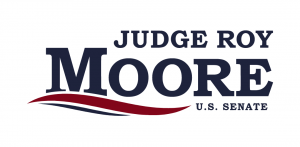by Naomi Clark
Responses to Donald Trump’s recent “solution” to the ongoing refugee crisis range from outrage to applause. Many appear to be convinced that closed borders, registries, badges, and internment camps are a matter of national security. An yet, as others are pointing out, such policies are strikingly similar to those of Nazi Germany. Here’s the point I’m afraid too many of us will miss: like Trump, Hitler’s approach wasn’t really unique for his time, just more extreme.
This semester I am teaching a rhetorical theory survey course that draws on the ongoing Presidential primary campaigns for examples of the rhetorical concepts we are learning about in class. Two of the names that come up the most frequently in students’ responses and class discussions are, unsurprisingly, Hitler and Trump. (In fact, I’ve stopped just short of banning their names from class in order to bring more variety to our discussions.) Granted, Trump excels at shock-and-awe statements that attract media attention and we read Kenneth Burke’s “The Rhetoric of Hitler’s Battle,” so I get it.
In addition to Burke’s thoughtful rhetorical analysis of the strategies in Mein Kampf, we have also discussed the history of race in the U.S. and the legacy of racism institutionalized through eugenics, social policy, and Jim Crow laws. We have learned how pervasive the practices of regulating, marginalizing, and policing the reproduction and behavior of certain ethnic and racial groups were in Western Europe and the U.S. in the early twentieth century. In fact, in the 1930s Nazi Germany based its sterilization laws on California law, and certain U.S. officials expressed admiration for the way Germany was handling its so-called “undesirable” populations (see Dorothy Roberts and Marouf Hasian). In fact, rhetoric scholar Stephen Katz goes so far as to argue that the holocaust was not an aberration in the history of Western civilization, but was the culmination of its emphasis on expediency, efficiency, and rationalism on which the West prides itself.
These discussions have prompted me to think about the way that U.S. politicians, their proponents, and commentators almost reflexively compare opponents to Hitler. In light of these shared sentiments between the U.S. and Germany in the early twentieth century, how is it that Hitler became the benchmark for all that is evil? Sure, the horror of the death camps is beyond words, but the underlying logic was swirling in American waters too. Is it simply a lack of knowledge about our own history?
I want to suggest that just as the Jewish people were Hitler’s scapegoats for whom he blamed all of Germany’s problems, so too Hitler has become a political scapegoat for Americans today. As I’ve discussed with students, scapegoating goes beyond mere criticism, but it is a practice of setting up a particular entity to bear all the blame for all kinds of unrelated problems. It is a process of externalizing all manner of frustrations, disappointments, and failures onto a singular, identifiable entity in order to preserve or construct our own sense of self. In the chaos of post-WWI Germany, Hitler singled out those he deemed unfit in order to preserve a sense of national pride. Thus when American politicians make–often implied–comparisons to the holocaust and Hitler, Hitler becomes a twenty-first century scapegoat, allowing us to externalize the latent or active racism in our world onto a distant, already-hated entity, allowing us to feel better about ourselves because, after all, we are not personally responsible for the slaughter of millions.
And to take this idea a step further, I want to also suggest that when we denounce Trump for his dehumanizing, unthinkable solutions, we should also remember the ongoing outpouring of hate toward people protesting racist intimidation on American college campuses. We should think about the refusal of the American people to deal with the international trade policies and war profiteering that set off domino-like effects that bring so many desperate immigrants to our borders. We should consider how we have elected and re-elected officials who have helped their friends make millions of dollars by incarcerating massive numbers of Americans of color. In other words, when we denounce Trump’s outrageous ideas (as we certainly should), let’s resist the urge to make Trump our scapegoat by focusing only on him (as he is counting on us to do), but instead, let’s broaden our scope to think about just how normal the logics of his ideas are. That’s the real scandal.
Naomi Clark is an English professor at a Midwestern liberal arts college and a R3 contributor.
Donate to the Work of R3
Like the work we do at Rhetoric Race and Religion? Please consider helping us continue to do this work. All donations are tax-deductible through Gifts of Life Ministries/G’Life Outreach, a 501(c)(3) tax exempt organization, and our fiscal sponsor. Any donation helps. Just click here to support our work.
















